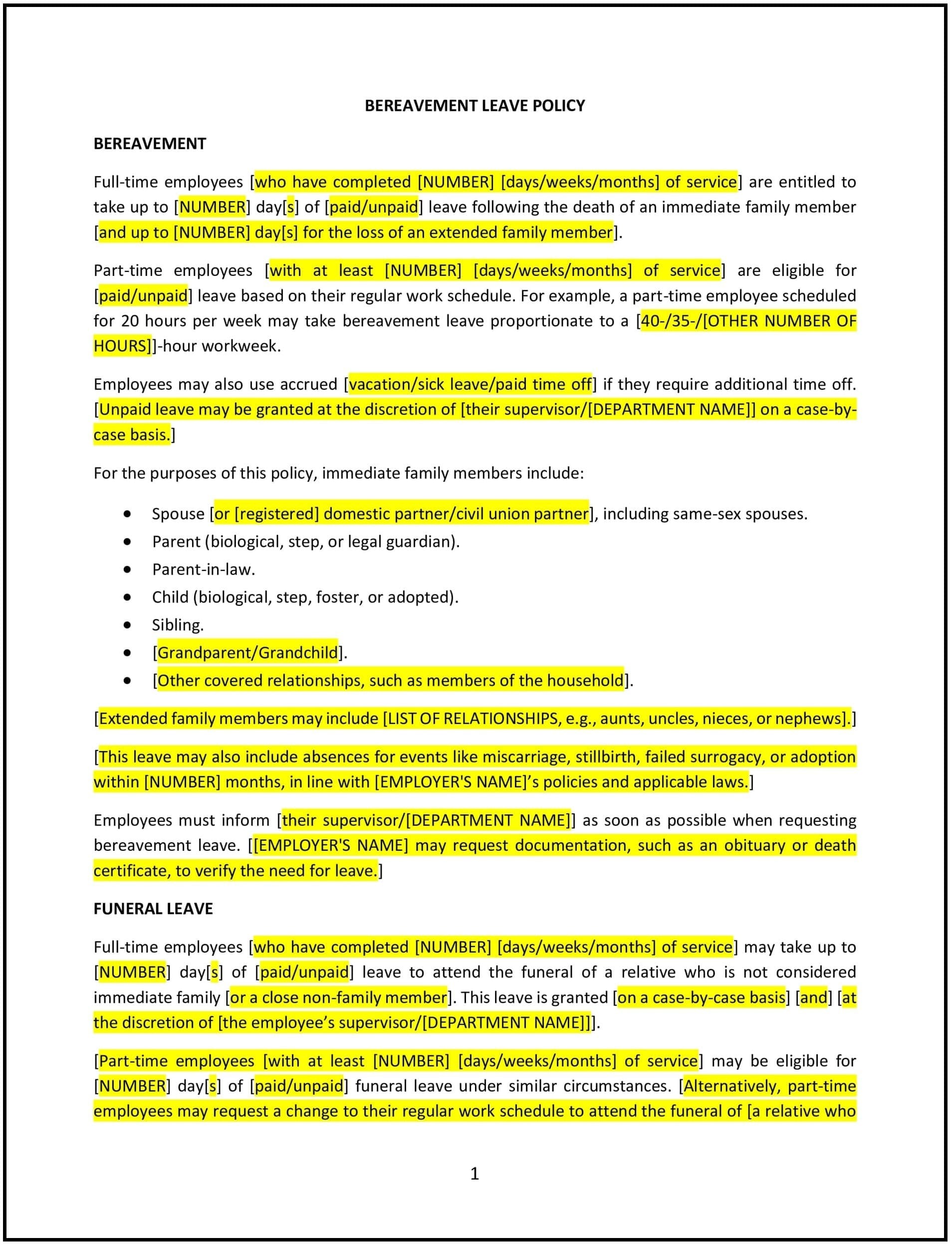Got contracts to review? While you're here for policies, let Cobrief make contract review effortless—start your free review now.

Customize this template for free
Bereavement leave policy (Nevada)
This bereavement leave policy is designed to help Nevada businesses provide support to employees who experience the loss of a loved one. It outlines the provisions for time off to allow employees to grieve and handle funeral arrangements, ensuring that employees can manage personal loss while balancing workplace responsibilities.
By adopting this policy, businesses can show compassion for employees during difficult times, promote a supportive work environment, and reduce workplace disruptions caused by personal grief.
How to use this bereavement leave policy (Nevada)
- Define the scope of bereavement leave: Clearly outline who qualifies for bereavement leave and the circumstances under which it may be granted, including the loss of immediate family members such as parents, spouses, children, or siblings.
- Specify the duration of leave: Detail how many days of leave employees are entitled to for bereavement, depending on the relationship to the deceased and company policy.
- Address additional leave: Provide information on whether employees can request additional time off beyond the standard bereavement leave, either through paid time off (PTO) or unpaid leave.
- Outline the notification process: Specify how much notice employees should give when requesting bereavement leave, and outline the steps for notifying their supervisor or HR department.
- Clarify compensation: State whether bereavement leave is paid or unpaid and under what circumstances, and provide clarity on how leave will be compensated if the employee has available PTO or sick days.
- Include documentation requirements: State whether any documentation, such as a death certificate or obituary, is required for verification purposes, while ensuring that the process is sensitive to employees’ emotional needs.
- Set guidelines for return to work: Provide expectations for employees returning to work following bereavement leave, ensuring that the transition back is respectful and supportive.
Benefits of using this bereavement leave policy (Nevada)
This policy provides several key benefits for Nevada businesses:
- Supports employee well-being: Provides employees with time off to grieve and attend to personal matters without the added stress of work obligations.
- Enhances employee morale: Demonstrates the company’s care and support for employees during difficult times, fostering loyalty and respect.
- Reduces workplace disruptions: Helps ensure that employees can focus on their personal loss without worrying about job-related consequences.
- Promotes fairness: Offers a consistent approach to bereavement leave, ensuring that all employees are treated equally when facing the loss of a loved one.
- Aligns with Nevada state law: Ensures compliance with relevant state laws regarding bereavement leave and employee rights.
Tips for using this bereavement leave policy (Nevada)
- Communicate the policy to employees: Ensure all employees are informed of the policy and understand the provisions for bereavement leave through onboarding or company handbooks.
- Provide flexibility: Consider allowing employees to extend their leave through PTO or unpaid leave if they need additional time to grieve or manage personal affairs.
- Be sensitive to individual needs: Recognize that the grieving process is different for everyone and offer additional support where necessary.
- Review and update the policy regularly: Periodically review the policy to ensure it aligns with changes in Nevada law or company practices and to meet employees' evolving needs.
- Ensure privacy: Respect the privacy of employees during difficult times by handling bereavement leave requests and related discussions confidentially.